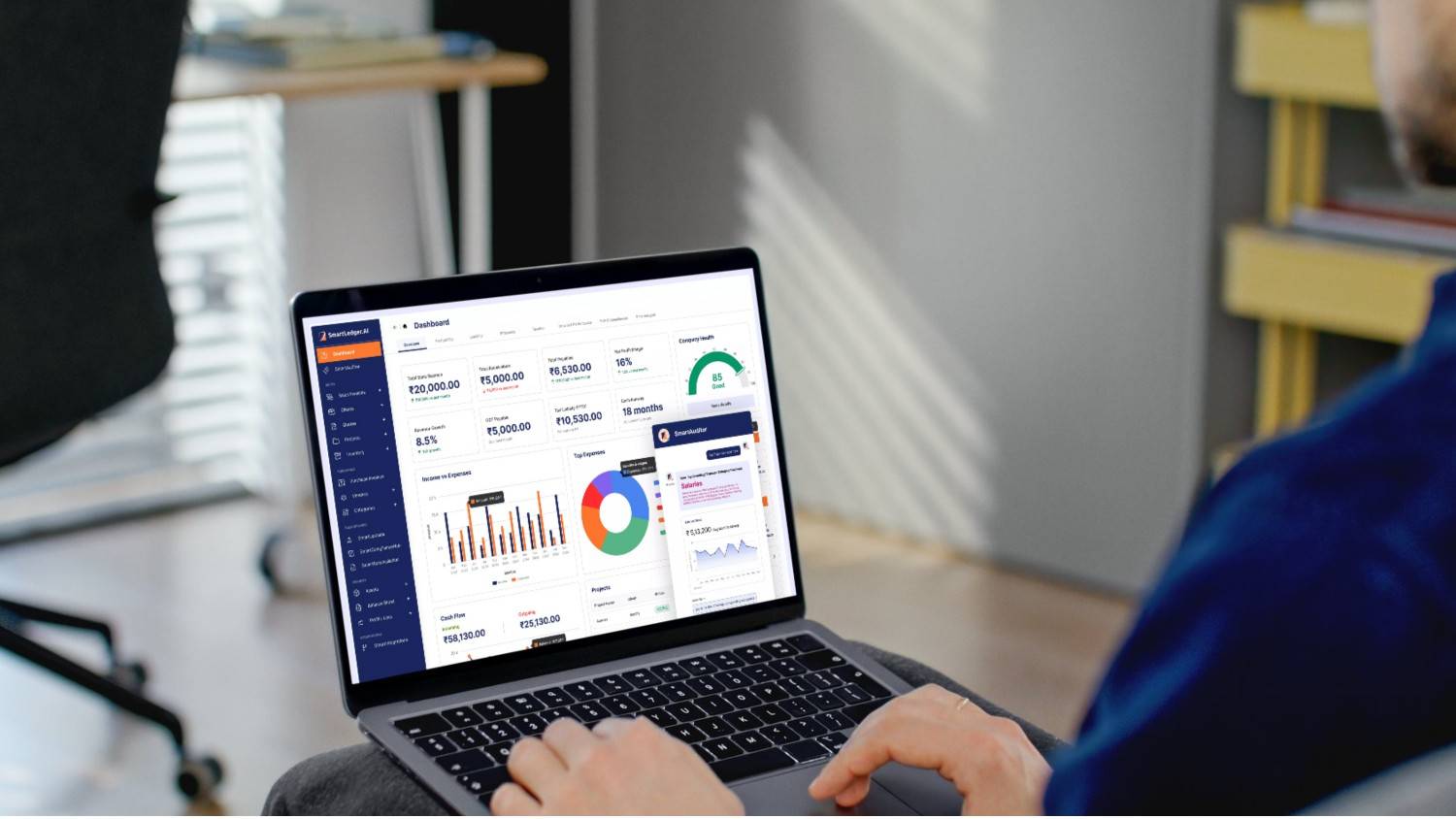

.webp)
Introduction: The Rising Demand for Data-Driven Forecasting
The Impact of Forecasting on Business Success
Did you know that companies that use forecasting tools are 33% more likely to achieve long-term financial success?
The Changing Landscape of Business Consulting
As we move into 2025, the landscape of business consulting is evolving. Advisors and consultants can no longer rely solely on past performance metrics—they must embrace predictive analytics, AI-driven insights, and real-time forecasting tools to help businesses navigate economic uncertainties, shifting consumer behavior, and technological disruptions.
This article explores why forecasting is essential for business consulting, covering key methodologies, AI advancements, industry applications, and future trends that will shape smarter decision-making in 2025 and beyond.
Understanding Forecasting in Business Consulting
What is Business Forecasting?
Business forecasting is the process of using historical data, market trends, and predictive models to project future business outcomes. It helps consultants identify risks, optimize resources, and develop data-driven strategies.
Why Forecasting Matters in 2025
- Economic uncertainty requires predictive insights
- AI and big data improve forecasting accuracy
- Consultants need real-time analytics for competitive advantage
Action Tip: Businesses must shift from reactive decision-making to proactive forecasting to stay ahead.
Key Forecasting Techniques for Smarter Consulting
Qualitative vs. Quantitative Forecasting
Qualitative Methods
- Expert opinions (Delphi method)
- Market research and customer sentiment analysis
Quantitative Methods
- Time series analysis
- Regression models
- AI-driven predictive analytics
Case Study: McKinsey & Co. uses AI forecasting models to help Fortune 500 firms predict supply chain disruptions and adjust strategies in real time.
The Role of AI and Predictive Analytics in Forecasting
How AI Enhances Business Forecasting
AI Capabilities in Forecasting
- Machine learning refines predictive models over time
- Real-time data processing improves forecasting accuracy
- AI detects patterns and anomalies that human analysts might miss
Top AI-Powered Forecasting Tools
Leading AI Solutions for Business Consulting
- Smartledger.AI – Provides deep predictive insights
- Google Cloud AI Forecast – Predicts customer demand
- IBM Watson Analytics – Delivers advanced forecasting capabilities
- Tableau AI – Visualizes forecasting models in real-time
Action Tip: Consultants should integrate AI-based forecasting tools into their financial and operational planning.
Industry-Specific Forecasting Strategies
Forecasting in Financial Consulting
Financial Market Predictions
- Stock market predictions using AI-driven sentiment analysis
- Cash flow forecasting for businesses to improve liquidity
- Risk modeling for better investment decision-making
Forecasting in Marketing and Sales Consulting
Consumer Trend Predictions
- Predicting consumer trends using social media analytics
- AI-driven demand forecasting to optimize inventory management
- Personalized marketing strategies based on behavioral forecasting
Forecasting in Supply Chain and Operations
Optimizing Logistics with AI
- Real-time tracking of inventory demand
- Disaster recovery forecasting to prevent operational losses
- Automated decision-making for logistics optimization
Case Study: Amazon’s AI forecasting model reduced delivery delays by 20% in 2023, improving supply chain efficiency.
Overcoming Challenges in Business Forecasting
Common Forecasting Mistakes
Pitfalls to Avoid
- Relying too much on historical data without adjusting for market shifts
- Ignoring external macroeconomic factors
- Failing to update models with real-time data
Best Practices for Accurate Forecasting
Improving Forecasting Accuracy
- Use a mix of qualitative and quantitative data
- Leverage AI-driven tools for improved accuracy
- Regularly update forecasting models based on new trends
.webp)
Future Trends: What’s Next for Forecasting in Consulting?
Emerging Technologies in Forecasting
Innovations in AI and Blockchain
- Hyperautomation: AI will fully automate forecasting in financial and operational planning
- Quantum Computing: Advanced calculations for ultra-precise business predictions
- Blockchain and Predictive Analytics: Securing financial forecasting with immutable data records
- AI-Powered Scenario Planning: Real-time modeling for crisis management and economic downturns
Action Tip: Stay ahead by investing in AI and automation tools for business forecasting.
Key Takeaways: The Importance of Forecasting in 2025
- Forecasting transforms business consulting from reactive to proactive
- AI-powered models improve forecasting accuracy and efficiency
- Industry-specific forecasting enhances decision-making in finance, marketing, and supply chains
- Embracing predictive analytics ensures business resilience in uncertain markets
Conclusion: The Power of Predictive Decision-Making
The Need for Advanced Forecasting in Business
As business environments become increasingly complex, forecasting is no longer optional—it’s essential. In 2025, consultants who leverage predictive analytics, AI, and real-time data modeling will provide unparalleled strategic value to businesses.
Statistic: Companies that integrate AI-powered forecasting increase profitability by 23% on average.
By embracing modern forecasting techniques, consultants can drive smarter decisions, optimize strategies, and future-proof business success.



.webp)
.webp)













.svg)
%201%20(2).jpg)
%201%20(2).webp)
%20(2).webp)

.webp)
